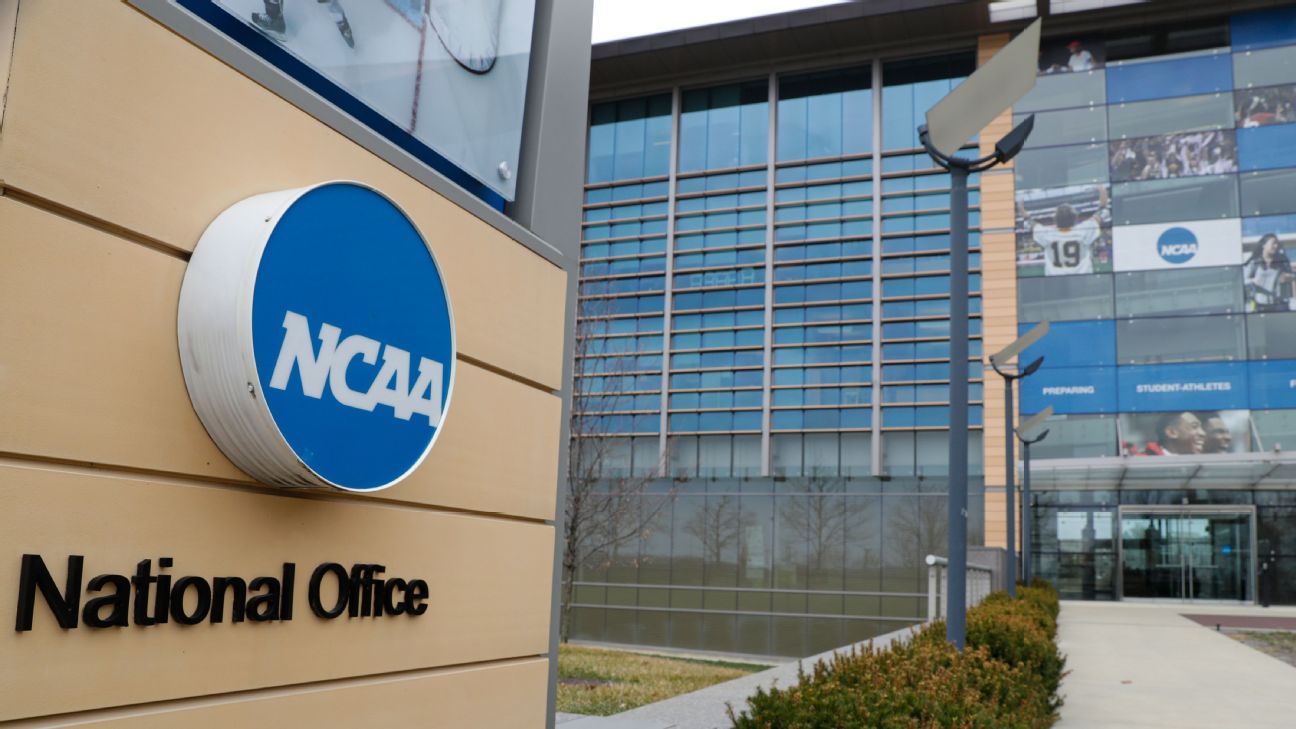The NCAA’s national office informed member schools on Tuesday some recent methods that schools have started using to get more directly involved in helping their athletes make money from name, image and likeness deals are violations of the association’s rules.
New NCAA guidelines directly conflict with some state laws that are already in effect or will go into effect by the end of the summer, setting up a potential clash that will once again test the association’s legal ability to enforce its rules. In a letter sent to the schools Tuesday afternoon, Stan Wilcox, NCAA executive vice president of regulatory affairs, wrote that even if state laws allow for some specific types of NIL activities, schools could be punished by the NCAA for pursuing them.
“The Association has been clear and maintains that schools must adhere to NCAA legislation (or policy) when it conflicts with permissive state laws,” Wilcox wrote in the letter. “In other words, if a state law permits certain institutional action and NCAA legislation prohibits the same action, institutions must follow NCAA legislation.”
In recent months, several states have passed laws that allow for fundraising groups that are legally separate yet closely partnered with universities, to start paying athletes for NIL endorsements. In Texas, for example, a law is set to go into effect on July 1 that would allow fundraising groups like the Longhorn Foundation or the 12th Man Foundation, which support the athletic departments at Texas and Texas A&M, respectively, to raise money for NIL deals. Similar laws have been passed in Arkansas and Oklahoma, among others.
The NCAA said Tuesday that schools are responsible for making sure these fundraising organizations do not pay athletes for NIL deals.
The new law in Texas will also allow schools to provide perks to fans who donate to these NIL funds. Schools such as Texas and Texas A&M said in the past month they are planning to provide priority points to fans who donate to NIL funds that will help the fans get better tickets at home games or have preferred access to tickets to bowl games or postseason events. The NCAA said Tuesday this kind of incentive to donate to an NIL fund is a violation of its rules.
In an interview with ESPN prior to Tuesday’s letter, Texas A&M athletic director Ross Bjork said his department planned to start providing that benefit to its fans later this summer. When asked if those plans would proceed even if the NCAA decided that type of perk was against their rules, Bjork said his department planned to do as much as Texas law allowed.
“The state law is going to govern how we do business,” Bjork said. “We will continue to communicate with the NCAA on a variety of matters, but in terms of this, the state law will reign.”
Tim Buckley, who serves as the NCAA’s senior vice president of external affairs, said the NCAA isn’t forcing schools to break any state laws. They are instead letting schools know that just because a state allows a certain type of activity, that doesn’t mean NCAA members are allowed to do it.
“Until the rules change, the rules are what they are for every member institution whether you are in state A or B,” Buckley told ESPN earlier this week.
However, the new law taking effect in Texas also includes a provision that says the NCAA and its conference are prohibited from punishing any school that takes advantage of these new types of NIL activities. If the NCAA sanctions a school in Texas for providing perks to donors in exchange for NIL dollars, that school could pursue legal action against the NCAA. Buckley said those types of situations include too many hypothetical elements to comment on how a potential showdown between the NCAA’s rules and the law of Texas might play out in court.
Other clarifications included in Wilcox’s letter include:
Boosters (including collectives) are not allowed to meet with recruits to discuss potential NIL opportunities in order to encourage them to attend a particular school.
NIL deals can’t include clauses that require an athlete to attend a particular school or live in a particular geographic area.
Event sponsors cannot pay an NIL collective, which in turn pays athletes, as part of a contract for a team to participate in an event. For example, some schools have signed contracts with mid-season basketball tournaments that include a promise from the tournament organizer to donate thousands of dollars to the collective group associated with that school. Football bowl game sponsors have also explored similar arrangements.
